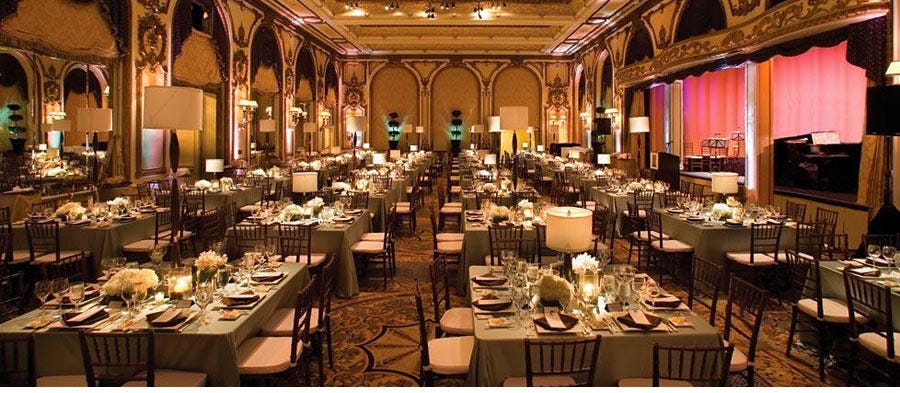The Blues & Billie Armstrong 49
A GRITTY STONE
Previously in The Blues & Billie Armstrong…
Members of his unit reported that Private Cole was killed before the rest of the unit was forced to retreat, and his body has not been recovered. No funeral plans have been announced.
For a few shining moments, I was sitting on top of the mean old world.
To celebrate my Pulitzer (and to reap the PR benefits), the San Francisco Sentinel hosted a banquet in my honor. Publisher Daniel Lockhart, a pudgy red-cheeked man with disheveled prematurely-white hair, stood at the front of the Gold Room at the Fairmont Hotel in a wrinkled seersucker suit and read from three-by-five index cards. “Ladies and gentlemen, please welcome San Francisco’s favorite contrarian, the Working Man’s Thinking Man, Archer King.”
I stood up to moderate applause, strode to the lectern and shook Lockhart’s fat sweaty hand. I gave a short speech which began with the well-worn tale of the wise old editor who changed my life in the early days of my career by informing me that I was far too arrogant, judgmental and undisciplined to make it as a straight newsman—therefore I was promoted to columnist.
Throughout this recitation I was distracted by the gaze of a woman standing at the back of the room near the baroque wooden doors. She seemed out of place, a little too businesslike and refined for the newspapering crowd, sipping red wine and leaning lightly against the wall as if she’d wandered in by accident and stayed to study the natives.
She had dark auburn hair that fell to her shoulders in loose curls, and she wore a brown tweed blazer over a matching knee-length skirt. Medium height and build, but not medium attractive. In fact, beautiful in a certain dark and guarded way. Clearly younger than I, late thirties if I had to guess out loud.
Her eyes were unabashedly focused in my direction, and even as I was speaking I briefly imagined she was attracted to me and would make her intentions known later in the evening—such is the monkeying mind of the American hetero male. But I quickly realized her look was too discerning, too penetrating and questioning. I was being sized up, but not for romance or sex, and not for business either. And what else is there?
All of that winked through my mind as I doled out the wise-old-editor story and a few other pre-fab laugh lines, then segued to a more elevated tone with a quote from Thoreau: “It takes two to speak the truth; one to speak and another to hear.” I salted in a line of kissass about the superior acumen of San Francisco readers, then I returned to my table, my ribeye, and my tumbler of bourbon.
I was seated at a square table draped in white linen and glimmering with silver and crystal, the opulence of the scene tarnished only by the presence of myself and my sodden compatriots—wizened old section editors and beatup beat reporters, the same jaded wretches I usually drink with, albeit in friendlier, shabbier (and cheaper) locales.
There was a distracting flurry of activity as a waitress delivered another round of drinks on the Sentinel’s tab, and a gaggle of gladhanders and sycophants (all arch-rivals or staunch critics before the Pulitzer) vultured around the table with drinks in one hand and phones or business cards in the other. They lined up for handshakes and selfies and clapped me on the back and hinted at future alliances, or dalliances, or both.
When the sea of them finally parted I noticed the woman in brown tweed had left the room.
I woke up at home with one of those hangovers that craves the safety of walls and shadows, yet I was reveling in it perversely.
I had a plan: a celebratory breakfast of strongman coffee, pork chorizo and eggs, plus orange juice, bourbon and a Percocet, followed by a criminally indulgent shower long enough and hot enough to threaten the environment, and an all-day Godfather marathon with intermissions of ill-advised processed food and nod-offs in the La-Z-Boy.
I wobbled out of the bedroom in pajama bottoms and t-shirt, navigated to the stereo and cued up some Jimmie Vaughan vinyl at low volume—laid back and blue and just a little coarse, like fine-grade sandpaper to smooth out the morning’s edges.
I scrambled up the chorizo and eggs and fed myself out of the skillet, standing at the big bay window facing Lincoln Way and Golden Gate Park. The April sunlight climbed the misty trees across the empty morning street.
San Francisco always looks so clean in the sun, even to me.
I chased the chorizo with the bourbon and the bourbon with the OJ, and I began to muse on future prospects. After the Pulitzer and some love from the national press, maybe I’d get a fat syndication offer from the Chronicle or the Post or, in my fanciest dreams, the New York Times.
Then my damn phone went off with the ringer turned up way too loud, juddering my still aching head. I barely got through, “hello-who-the-hell-is-this” before a woman began to speak in a measured, solicitous tone. “I’m sorry to bother you at home, Mr. King. My name is Valentine Jones. I enjoyed your remarks last night at the Fairmont. I wanted to talk to you, but I didn’t get a chance.”
“Ah… red wine and brown tweed at the back of the room?”
“I would’ve introduced myself, but you seemed preoccupied. I didn’t want to spoil the fun.”
“Nonsense, you should’ve stopped by my table. Not in the newspaper business, I gather?”
“I’m an attorney.”
I laughed. “Well, I’m already divorced, so I know how attorneys can spoil the fun.”
“I’m not a divorce attorney, Mr. King. But I am calling about a legal matter.”
“Am I being sued?” I threw in another chuckle.
Valentine Jones did not laugh. “No… actually I was hoping you’d be willing to talk to me about your involvement with Billie Armstrong.”
I paused longer than I wanted to. I walked toward the kitchen with the impulse to pour another drink. No one had pestered me about Billie Armstrong for several years. Most of the press and law enforcement had lost interest in the case, and many even presumed Billie was dead by now. “Look, Ms. Jones, I don’t know how you got this number or who told you different, but I’m afraid I really can’t help you. I’ve told the police—and the FBI, and everyone else—everything I could, over and over.”
“Yes, I’ve read your previous statements,” she said. “But I think you can help me… and so does Ms. Armstrong.”
Again I paused, suspicious of the implications. “Has she been captured?”
“No, but she’s tired, Mr. King. She’s been a fugitive most of her life—forty years on the run from a charge she doesn’t deserve. She’s tired, and she’s ready to turn herself in and have her day in court. She thinks you might know something that could help clear her name, something you didn’t mention to the police back in 1970. Or since.”
I poured three fingers of bourbon and took a slow, fortifying sip. This woman was fishing, and it was too early in the day and I was too hungover or perhaps already too boozy to nibble politely. “You’re accusing me of withholding information?”
“Not at all,” Valentine Jones said. “My client will surrender to the authorities soon—within the next several days—and I’d like to meet with you before then, voluntarily if possible, to discuss your eventual testimony.”
“What the hell does that mean—voluntarily if possible?”
“Mr. King, I know the two of you were close at one time. She was your sister, after all. I’m hoping that still means something to you. But, if necessary, you can be compelled to testify.”
“Look, Ms. Jones—Billie Armstrong was my stepsister for about a minute, a long, long time ago. And testify to what, exactly? You don’t know what you think you know, and neither does she. I’m not even convinced you are what you say you are. How does a wanted fugitive suddenly show up out of the blue with a slick, pushy lawyer like you anyway?”
This time she paused. “Sir, I’m her attorney… but I’m also her daughter.”
I knew with a newspaperman’s instinct that Valentine Jones was telling the truth. I knew by the way the sound of it sank like a gritty stone in my gut. After all the years of hope and dread, the past had finally and truly come calling. And I could not spit a word.
Outside the bay window, the famous San Francisco fog crawled up the street and smothered the sun. I watched my finger tap the red button to end the call—gently, as if my hand was tip-toeing backwards out of the room.
I turned off the phone and placed it face down on the kitchen counter, drained the glass of bourbon and went to the bedroom and swapped the pjs for a pair of khakis, a hoodie and some slip-on sneakers.
I grabbed my wallet and keys on the way to the door, pulled the hood up around my face and walked out into the gray city day.
The Blues & Billie Armstrong is a work of fiction. Names, characters, businesses, places, events and incidents in this book are either the product of the author's imagination or used in a fictitious manner. Any resemblance of the fictional characters to actual persons, living or dead, is purely coincidental.
© All Rights Reserved



